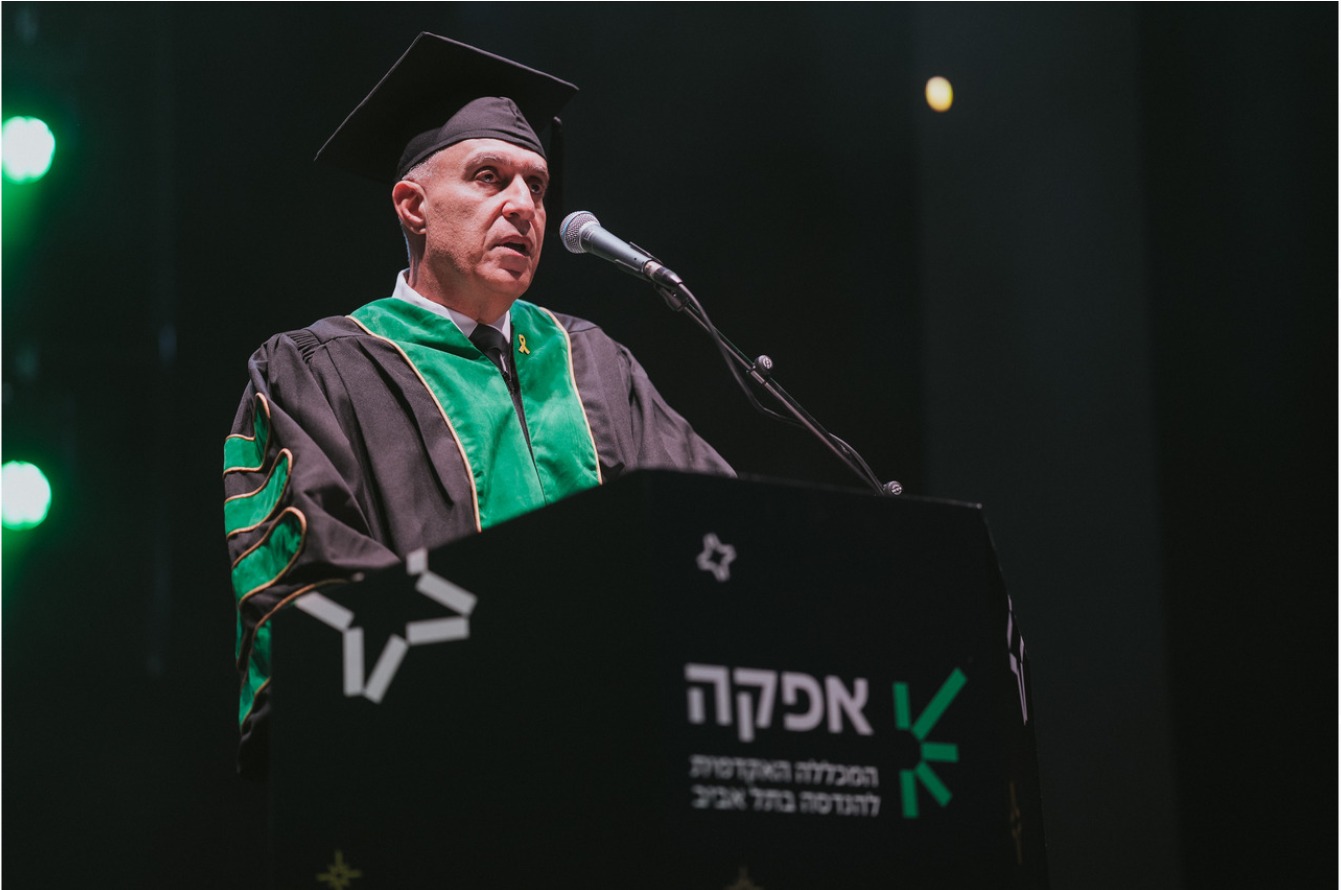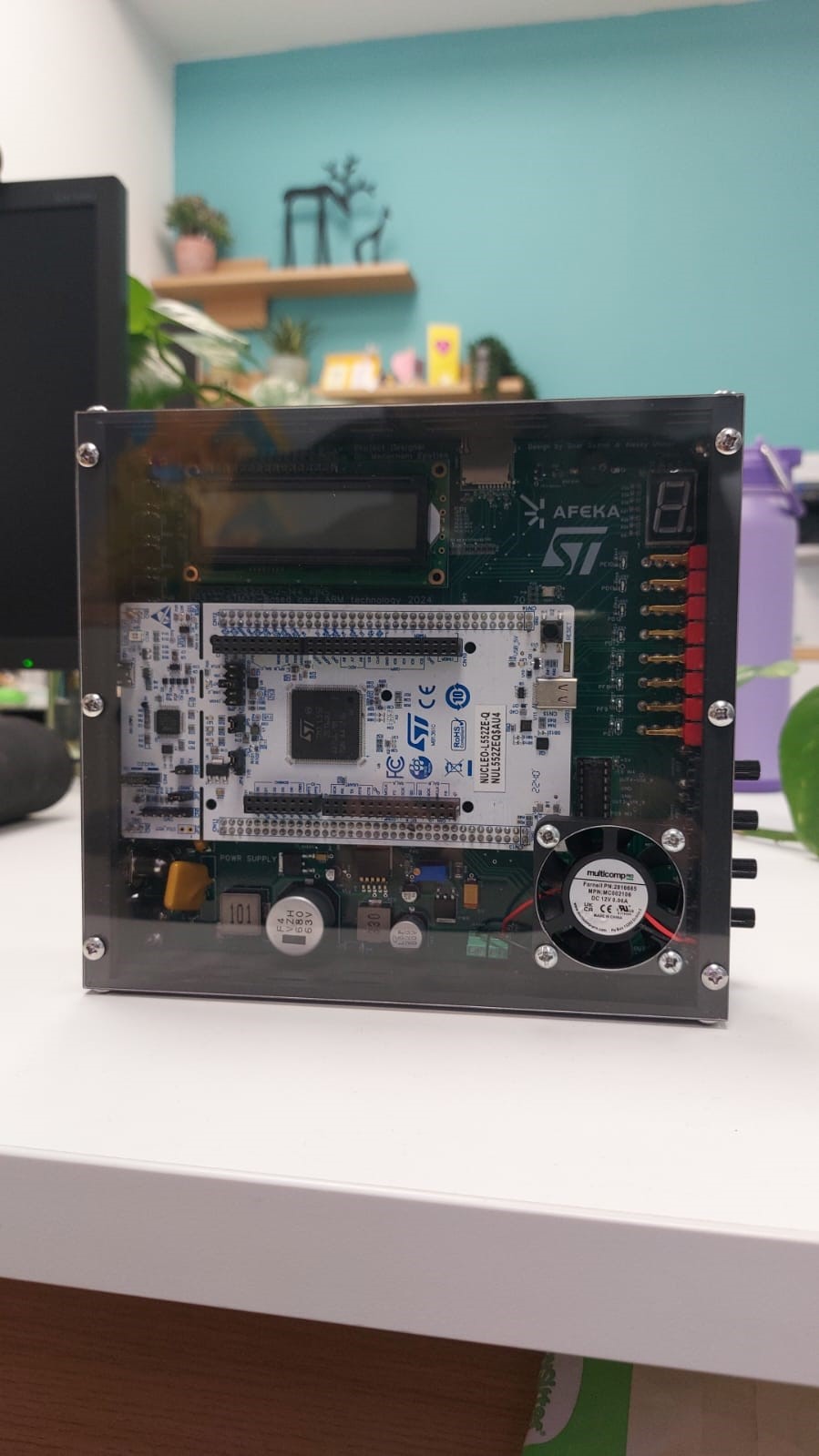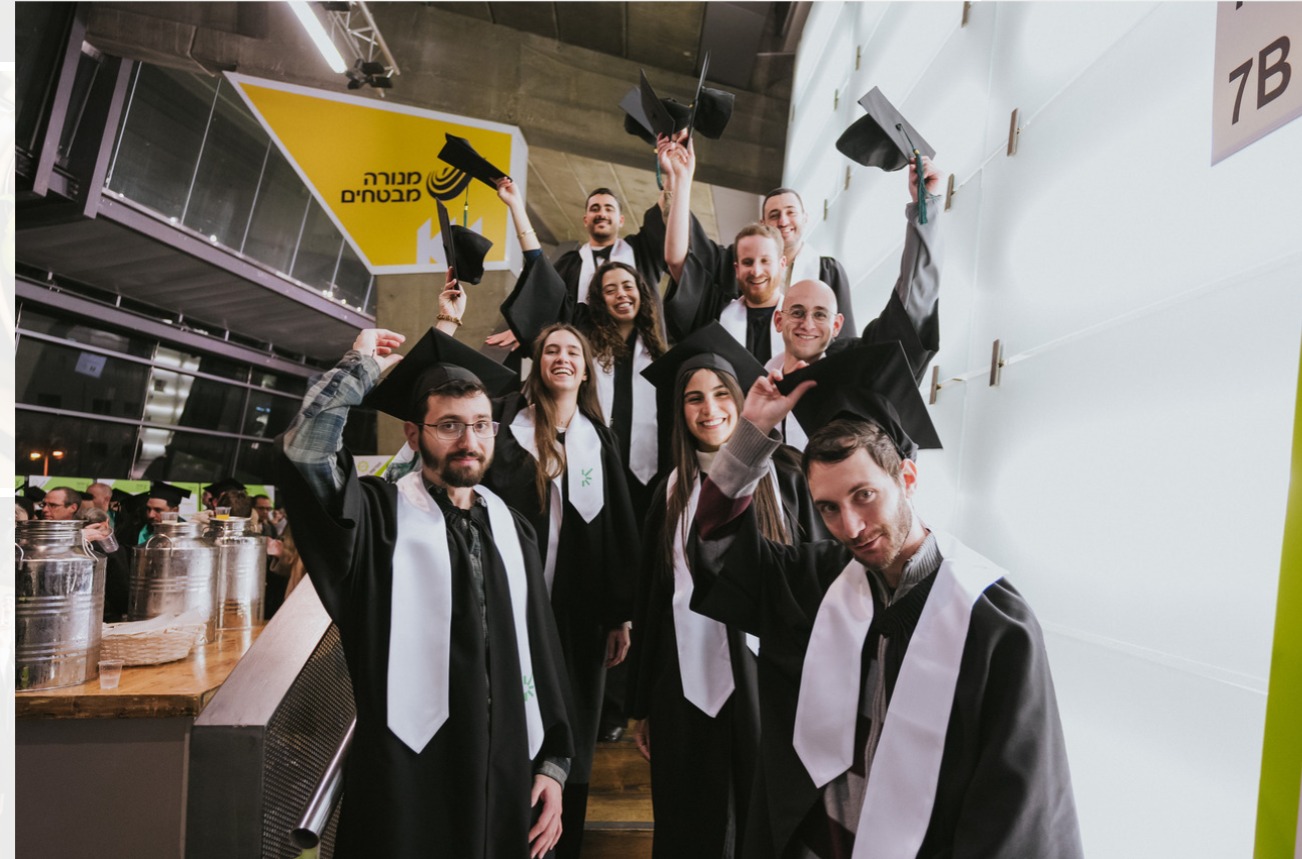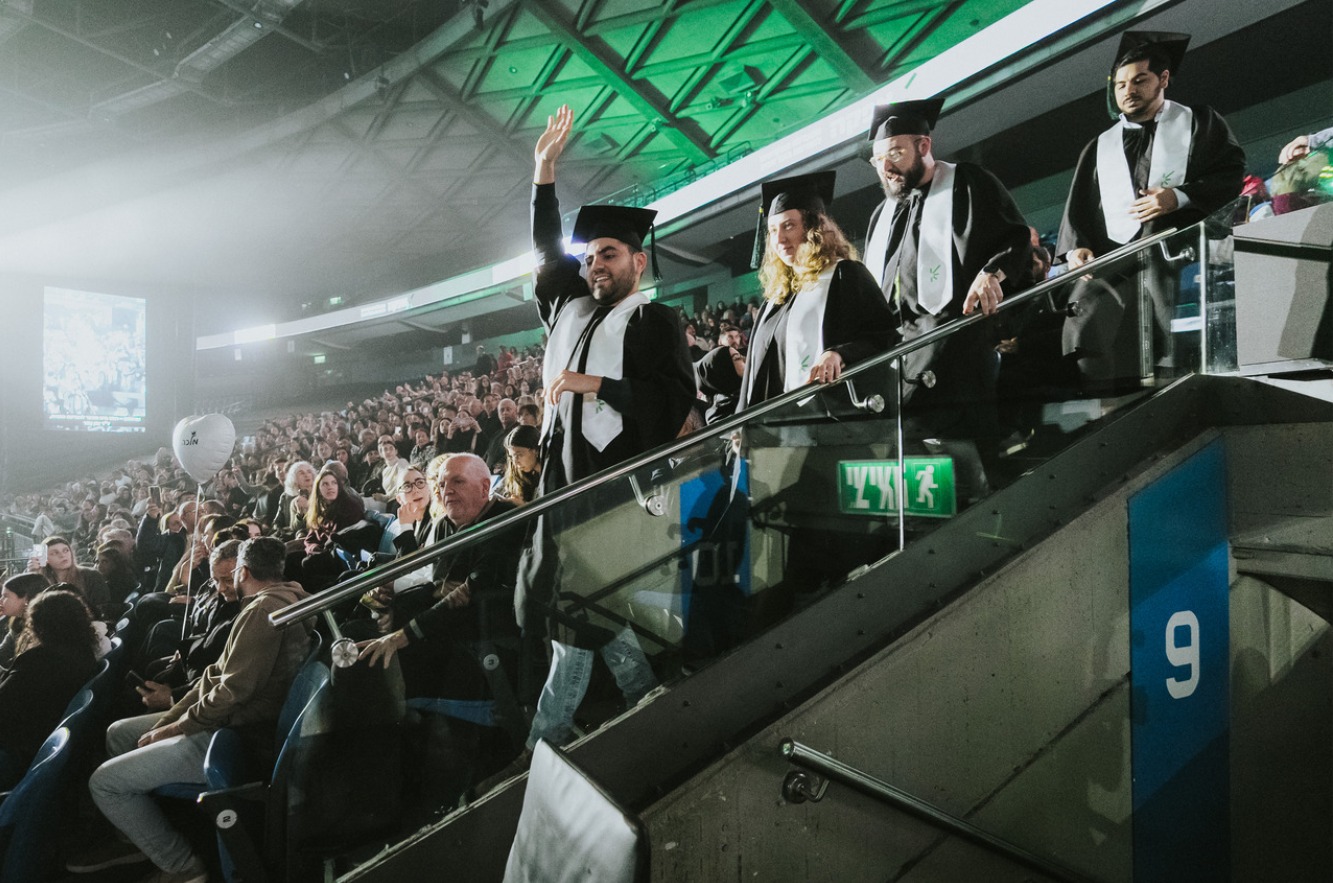Celebrating Resilience: 720 Afeka Engineering Graduates Poised To Boost Israel’s Postwar Recovery
The graduates began classes during the COVID-19 pandemic and finished during the war in Gaza, with 44% splitting their time between military service and studies, the highest ratio in Israel
Last month, Afeka Academic College of Engineering’s largest-ever class held a graduation ceremony at the Menora Mivtachim Arena in Tel Aviv. In conversation with Afeka students and leaders at the event, the recurring topic of their innovative methodologies highlighted not just perseverance but also new possibilities for STEM higher education pedagogy.
“The past four years have been defined by crisis management,” said Ami Moyal, president of Afeka Academic College of Engineering in Tel Aviv, at the graduation ceremony for the 2023-24 graduating class. “These students started their studies in the midst of the COVID crisis, went back to in-person learning, and then had their final year disrupted by war. Yet they persevered, and today, they are stepping into the workforce stronger and more resilient.”

Ami Moyal, president of Afeka Academic College of Engineering, speaking at the school’s graduation ceremony in Tel Aviv on February 10, 2025. (Meni Shitrit)
Over 270 of the 720 graduates served in the Israel-Hamas war in Gaza while completing their degrees. Regev Hodorov, a mechanical engineering graduate who spent around 300 days on reserve duty, is one such student. “It was tough, but Afeka adjusted the schedule for all of us,” he told The Media Line. “This allowed me to graduate with my peers despite my service commitments.”
For many students, the war forced them to step away from their studies, unsure if they would ever return. One Afeka alumna and air force reservist named Nofar initially feared she wouldn’t complete her degree. But the college’s support made a big difference, she told The Media Line. “Afeka was like a family,” Nofar said. “They called me during my service, checked in on me, and ensured I had the support I needed to continue.”
Recognizing the unique challenges faced by students serving as reservists in the military, Afeka implemented a series of changes to ensure students could keep up with their coursework despite long absences and unpredictable schedules.
The college adopted hybrid learning models, which meant that every class was recorded and available at any time. Students were able to access lectures from wherever they were, catch up on material freely, and retake any class at no cost.
We ensured that no student serving in the reserves would have to miss out on critical coursework. This flexibility allowed our reservists to continue progressing academically, even while fulfilling their military duties.
“We ensured that no student serving in the reserves would have to miss out on critical coursework,” Moyal said. “This flexibility allowed our reservists to continue progressing academically, even while fulfilling their military duties.”
Give the gift of hope
We practice what we preach:
accurate, fearless journalism. But we can't do it alone.
- On the ground in Gaza, Syria, Israel, Egypt, Pakistan, and more
- Our program trained more than 100 journalists
- Calling out fake news and reporting real facts
- On the ground in Gaza, Syria, Israel, Egypt, Pakistan, and more
- Our program trained more than 100 journalists
- Calling out fake news and reporting real facts
Join us.
Support The Media Line. Save democracy.

A mobile lab kit provided to Afeka Academic College of Engineering students who were unable to attend class in person because of reserve duty. (Meni Shitrit)
In addition to academic adaptations, Afeka launched the “As One Campaign,” a fundraising initiative to support military students. The emergency fund provided financial assistance, academic resources, and even mobile lab kits, enabling students to complete practical coursework remotely.
The reality of living in Israel means that many of our students will serve in the military at some point. We have shown that with the right approach, academic institutions can support students in ways that go beyond traditional education.
“The reality of living in Israel means that many of our students will serve in the military at some point,” Moyal added. “We have shown that with the right approach, academic institutions can support students in ways that go beyond traditional education.”
Looking ahead, Afeka’s leadership sees these adaptations as more than just emergency measures—they represent a shift in how higher education can support students facing extraordinary circumstances. “No single methodology will replace everything,” Moyal said. “We’ve learned much about hybrid learning, flexible scheduling, and supporting students in crisis situations. These lessons will shape our approach moving forward.”
The college plans to integrate these strategies when needed, ensuring that future students can achieve their education goals.
As Israel’s economy recovers postwar, Afeka’s role in training engineers is crucial to keeping the spirit of the startup nation alive. “The high-tech sector is the engine of our economy,” Moyal said. “Our graduates are entering the workforce at a pivotal moment, and they will be instrumental in rebuilding and advancing Israel’s technological leadership.”
Oren Sagi, managing director of Cisco Israel and head of the Israel-America Chamber of Commerce, said that “Israel’s economy is in postwar recovery mode, and technology will play a key role in rebuilding.” Sagi was one of the Afeka graduation ceremony’s honorary fellowship award recipients.
The high-tech sector, regarded as Israel’s economic backbone, is expected to drive growth in Israel, and the demand for skilled engineers has never been greater. “Afeka College alone contributed over 10% of the engineers graduating in Israel this year, and many of our students are now working on projects directly related to national defense and technological advancement,” Moyal noted, highlighting the institution’s role in supplying the workforce necessary for Israel’s national security and reconstruction.
Afeka itself is also growing, increasing its number of students by 3-5% each year, according to Moyal. “Now we’re building a new campus in southeast Tel Aviv, which serves two purposes: It’s a socioeconomic mission, bringing an academic hub to a developing area, and it provides the space we need to expand to 5,000 students,” Moyal said.
As the graduating class moves into the workforce, Israel has a new generation of entrepreneurs, visionaries, and national and community leaders.
The demand for engineers is growing. We are stepping in at just the right time.
“I see opportunities everywhere—AI, cybersecurity, robotics—Israel’s tech industry is booming,” software engineering graduate Daniella told The Media Line. “Afeka gave us more than an education; it gave us the tools and a mindset to change the world, and the demand for engineers is growing. We are stepping in at just the right time.”

Afeka Academic College of Engineering graduates celebrating during the graduation ceremony in Tel Aviv on February 10, 2025. (Meni Shitrit)
Another graduate noted that she already had a job lined up working in a satellite communications startup.
Hodorov, the mechanical engineering graduate, has different priorities. “My wife and I are expecting a baby and moving back to the north and getting involved in building and rebuilding,” he said. “I want to get bored a bit. After 300 days of military service, I just want some stability. Stability is my goal now.”



